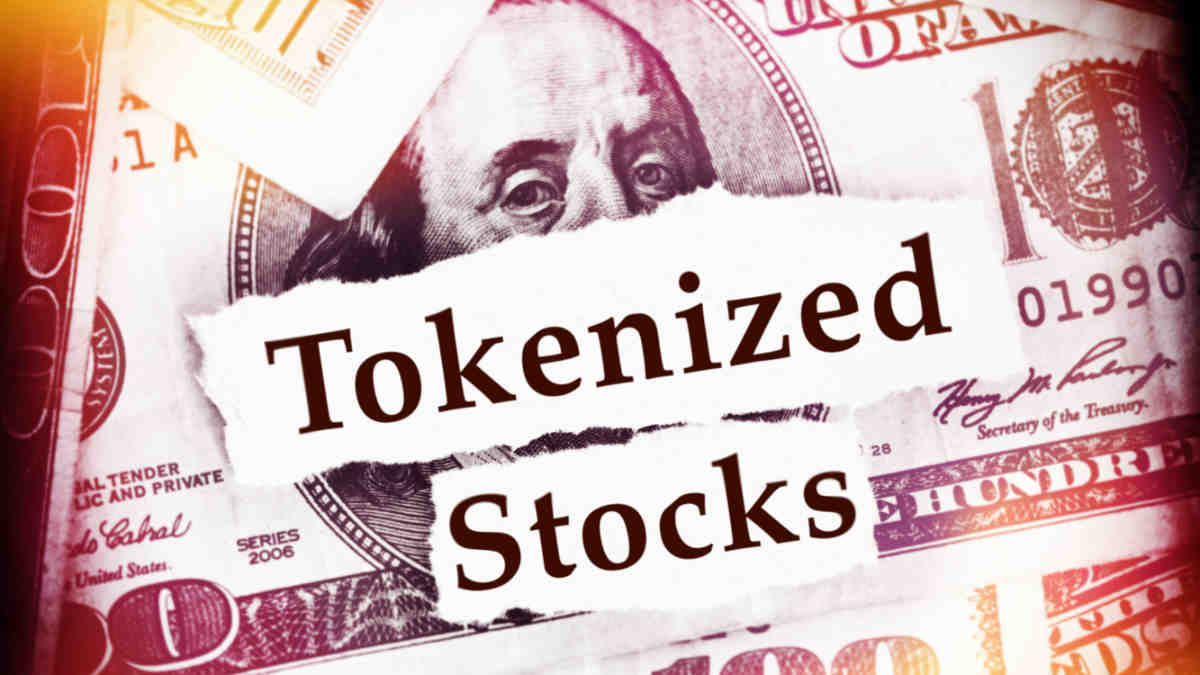Hot Money Monday: Tokenised stocks just got real, but is the world buying in?

Is the global market warming up to tokenised equities? Picture via Getty Images
- Robinhood fires up tokenised stocks in Europe
- OpenAI slams fake equity as token drama erupts
- Could tokenised stocks gain traction globally?
Last week, US trading platform Robinhood launched tokenised equities in Europe, taking a serious shot at dragging stock trading onto the blockchain.
The rollout includes more than 200 stocks, giving users a new way to trade companies like Tesla, Apple, and yes, even unlisted ones like SpaceX and OpenAI.
Except, that last part quickly turned spicy.
Within hours, OpenAI publicly disavowed the tokens tied to its name.
“These ‘OpenAI tokens’ are not OpenAI equity. We did not partner with Robinhood, were not involved in this, and do not endorse it,” the company wrote on X.
Robinhood CEO Vlad Tenev responded, clarifying that the tokens “effectively give retail investors exposure to these private assets,” and that they are backed via a special purpose vehicle (SPV) holding shares.
So what are tokenised equities?
Put simply, Robinhood’s tokenised equities – or stock tokens – are really crypto assets issued on the Arbitrum blockchain.
Each one is pegged 1:1 to a real US-listed share or ETF, which Robinhood (or a designated affiliate) actually holds in custody.
You don’t get the underlying share, and you certainly don’t get voting rights.
But you do get the economic exposure – price movement, dividends and all – delivered via your app or crypto wallet.
For now, they’re only available to EU/EEA residents, regulated under a licence from Lithuania’s central bank.
The idea is to make stock trading behave more like crypto: fractional, around-the-clock,and programmable.
For example, you can buy €1 of Nvidia at 3am in Prague, and Robinhood plans to eventually let users trade peer-to-peer or use tokens as collateral in a DeFi loan once self-custody is enabled.
Pros and cons
The pro is that you don’t need to wait for Wall Street to wake up and you don’t need $500 to get a piece of a US blue-chip stock.
There’s no commission, but users still pay blockchain and currency conversion fees.
Robinhood also plans to let users hold the tokens themselves on a new blockchain system, which would allow 24/7 trading and integration with the wider crypto world.
But the cons are real, too.
You don’t actually own the shares. You rely on Robinhood (or its partners) to act as middleman, custodian and facilitator.
What about corporate actions like splits and buybacks? You’ll get the economic equivalent but not the shareholder rights.
And while dividend payments are supported, the tokens aren’t SIPC-insured and regulatory protections are thin compared to traditional equities.
Then there’s the issue of private company tokens, like those tied to OpenAI and SpaceX.
These do not represent ownership in the companies themselves. Instead, they give users price exposure to shares held inside a Robinhood-controlled SPV.
Think of it like a synthetic contract.
You’re not a shareholder, you’re a participant in a proxy. And that’s part of why OpenAI was quick to distance itself.
Musk also chimed in on X with a jab: “Your ‘equity’ is fake.”
Could tokenised stocks take off globally?
For Robinhood, though, this is a strategic moonshot.
CEO Vlad Tenev has said tokenisation could give ordinary people access to markets typically walled off to the wealthy and well-connected.
In a January op-ed for the Washington Post, he wrote: “Tokenising private-company stock would enable retail investors to invest in leading companies early in their life cycles, before they potentially go public at valuations of more than $100 billion.”
Kraken has also launched tokenised stocks for non-US clients and JP Morgan is reportedly building infrastructure to tokenise carbon credits.
Even BlackRock CEO Larry Fink wrote in his 2025 letter that “Every stock, every bond, every fund – every asset – can be tokenised”.
What about Australia?
There’s no direct Robinhood-style offering here, yet.
But crypto exchanges like Kraken and Bybit are preparing to bring tokenised US stocks to Australian users.
Banks like ANZ are also experimenting with tokenised deposits and superannuation trials.
But most of these efforts are focused on wholesale finance and back-end rails, not retail equity access.
Read more here: Tokenomics: Animoca Brands takes a front seat for the blockchain tokenisation revolution
Tokenised equities are still an experiment; caught between innovation and regulation, and wrapped in plenty of legal grey.
And, as OpenAI reminded everyone last week, not always endorsed by the companies they represent.
At Stockhead we tell it like it is. While Animoca Brands is a Stockhead advertiser, it did not sponsor this article.
This story does not constitute financial product advice. You should consider obtaining independent advice before making any financial decision.
Related Topics
UNLOCK INSIGHTS
Discover the untold stories of emerging ASX stocks.
Daily news and expert analysis, it's free to subscribe.
By proceeding, you confirm you understand that we handle personal information in accordance with our Privacy Policy.








